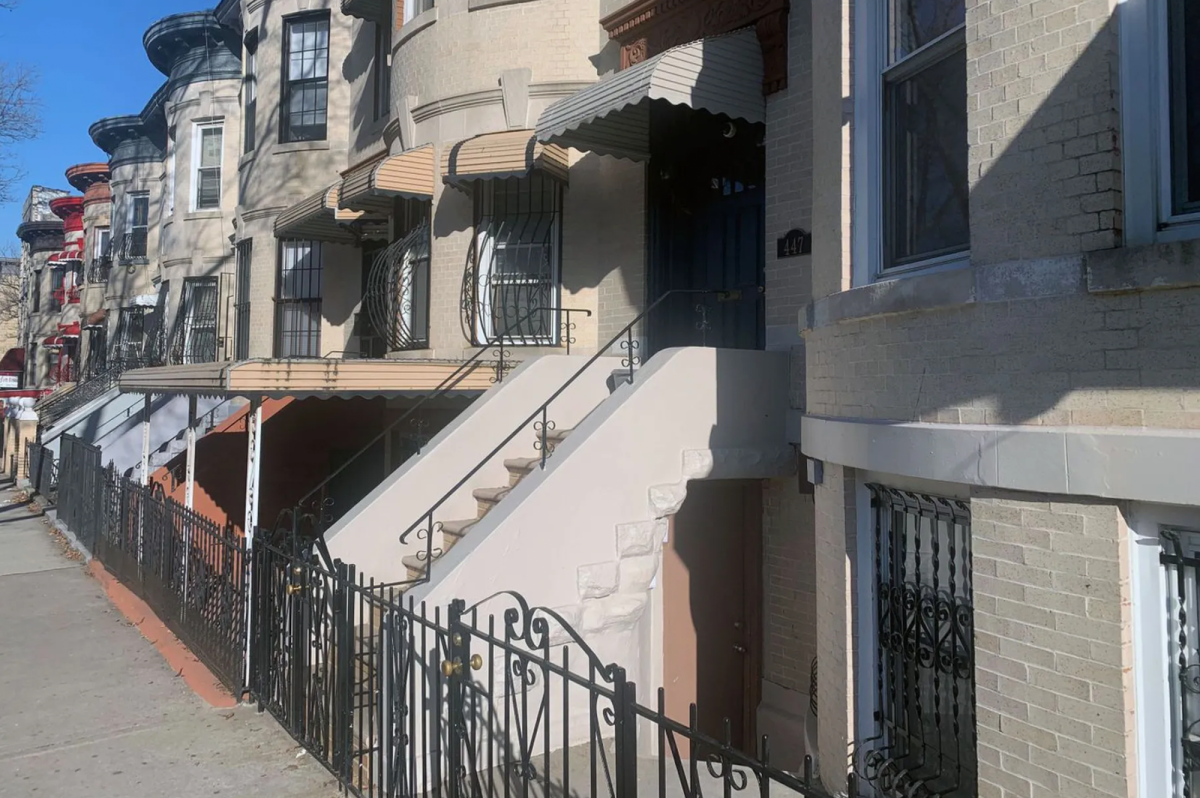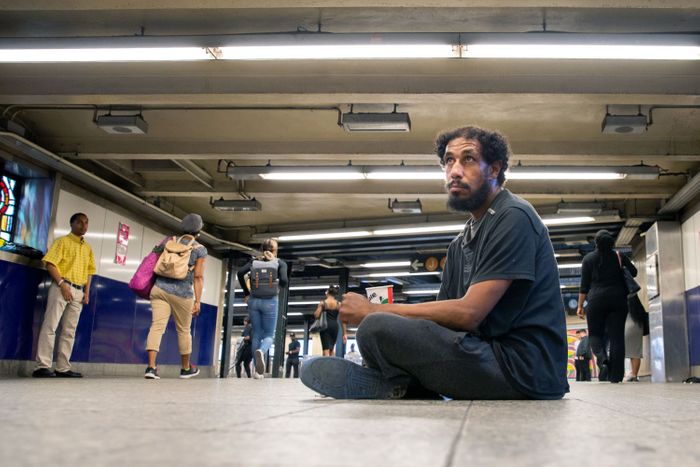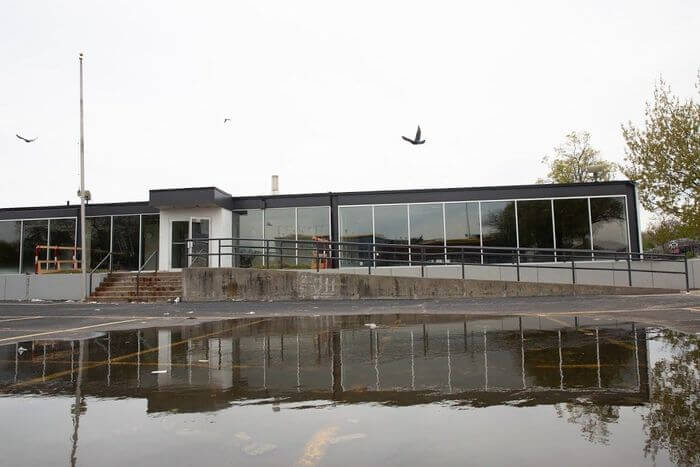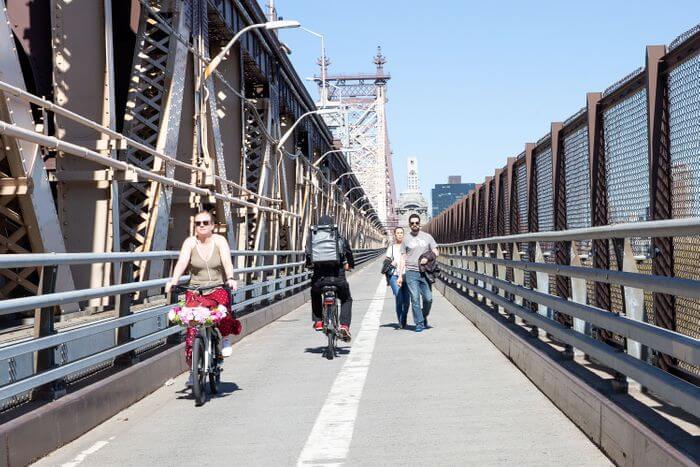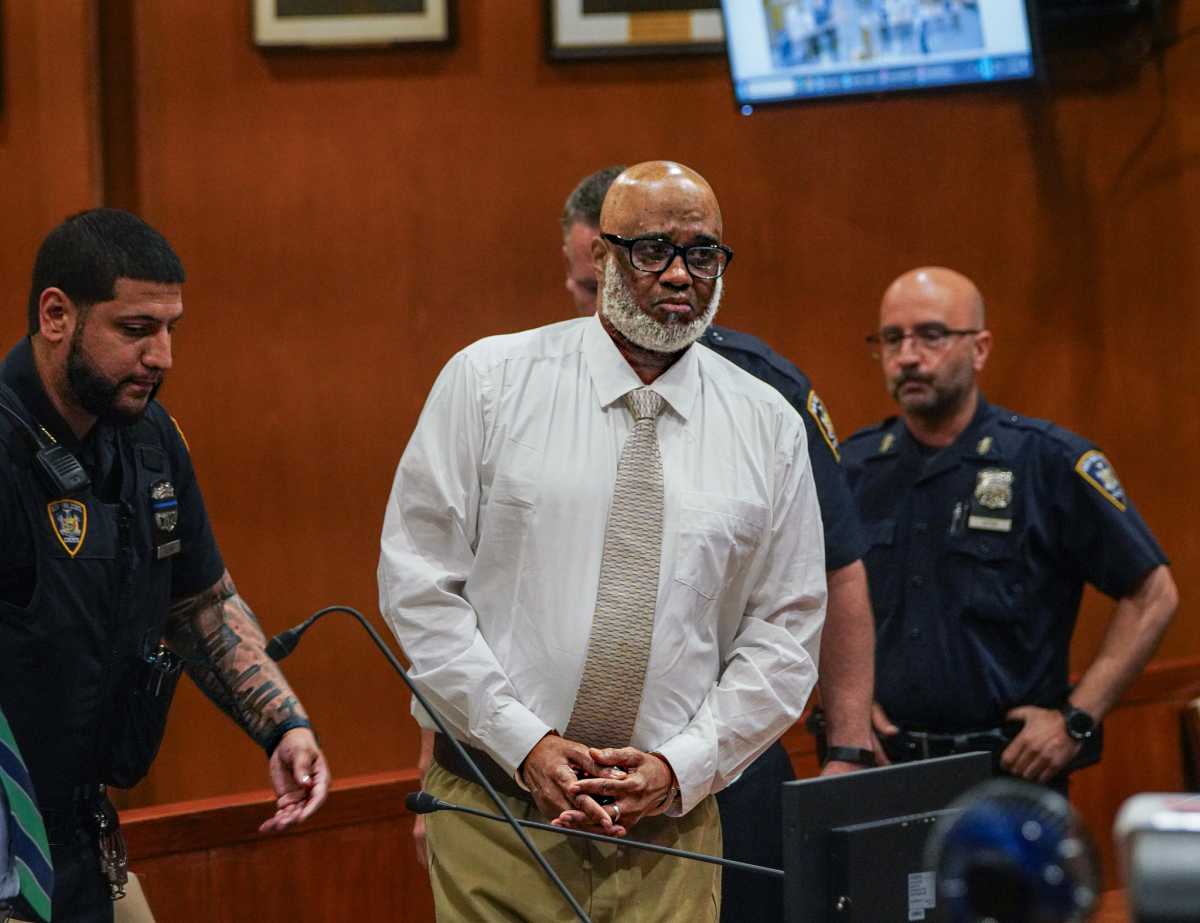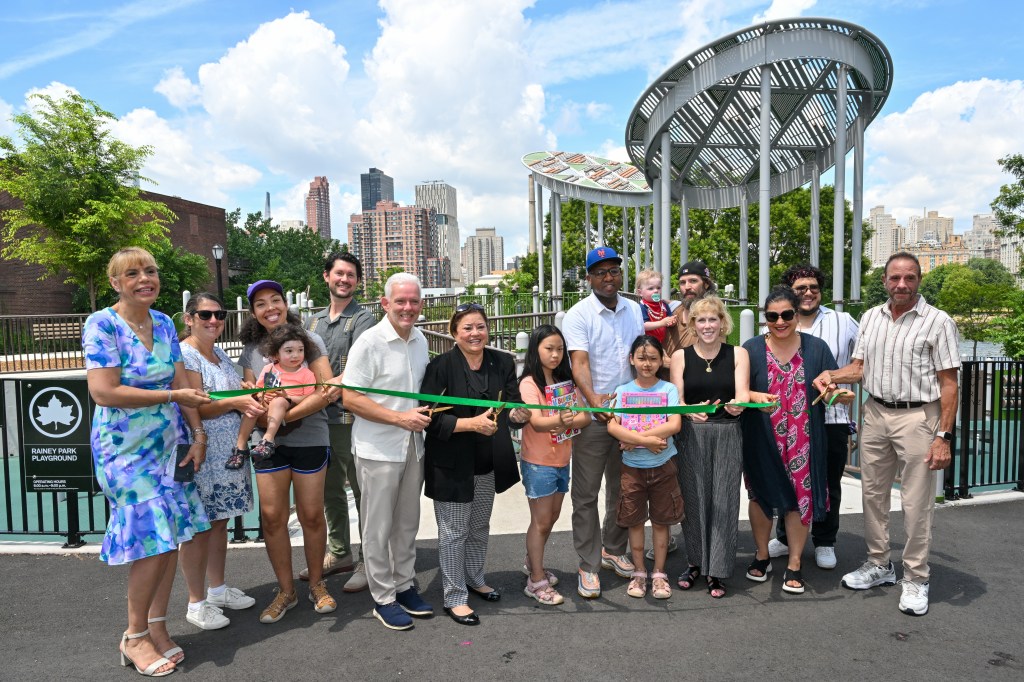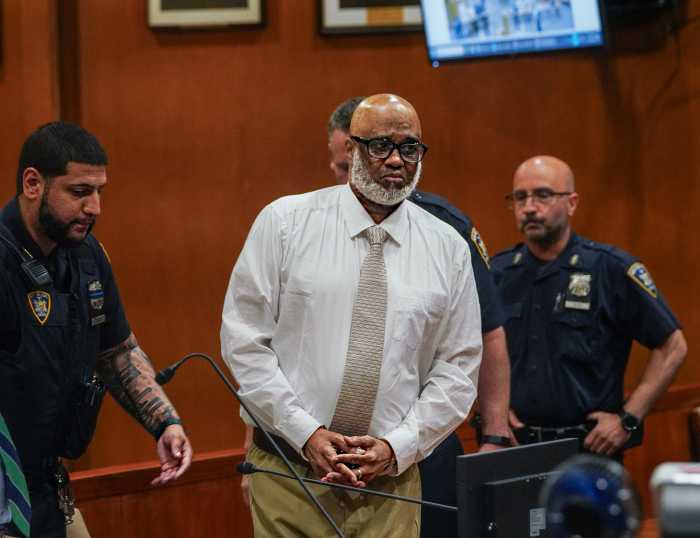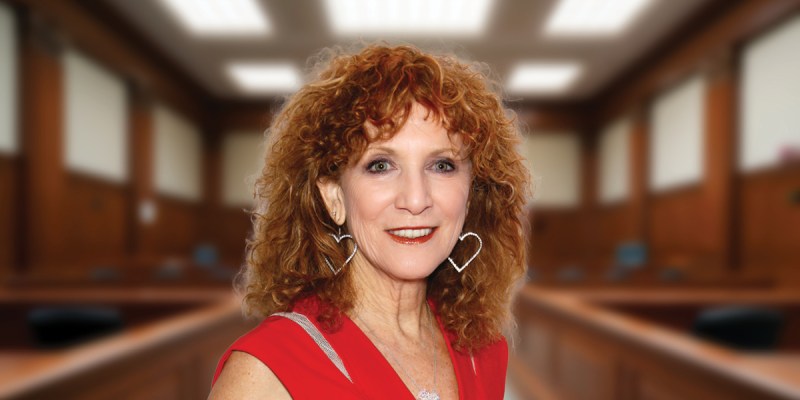This story was originally published on Sept. 2 at 10:53 p.m. by THE CITY. Sign up here to get the latest stories from THE CITY delivered to you each morning.
The majority of the at least 13 New Yorkers killed in Wednesday’s historic storm had one tragic thing in common: They were trapped in flooded basement apartments.
The day after the remnants of Hurricane Ida pounded New York, housing advocates and a handful of elected officials swiftly pressed the city to accelerate stalled efforts to make currently unauthorized basement apartments legal, which would bring higher safety standards and periodic inspections.
A pilot program launched in March 2019 to convert basements in Cypress Hills and East New York, Brooklyn, into legal dwellings collapsed last year when Mayor Bill de Blasio took away 92% of its funding.
At least 11 people — the youngest just two years old — drowned in basements in Queens and Brooklyn, offering evidence of the urgent need for citywide legalization, advocates argue.
“We are done with pilots, we don’t need one to prove that this is important. We just last night got all the proof we need,” Annetta Seecharran, executive director at Chhaya, a nonprofit group focused on the South Asian and Indo-Caribbean communities in Queens, said Thursday.
“The reality is people have always lived in basement apartments in New York City,” she added. “They will continue to live in them unless we can wave a magic wand and put over a hundred thousand units online tomorrow, people will continue to live in basement apartments.”
Tenants Afraid to Speak Up
Jagpreet Singh spent Thursday morning helping family members and neighbors clean out their basements, many of which were homes to tenants, in Elmhurst, Queens. He said nobody was prepared for what happened Wednesday night.
“My family members’ basement was flooded about two feet,” said Singh, a community organizer who’s worked on basement legalization. “Most of their furniture, beds, rugs are gone — all waterlogged. They’re drying clothes outside and trying to make sure that mold doesn’t enter the home.”
While his relatives will most likely be able to return to their home tonight, he said he’s worried about other basement tenants who cannot.
“It’s difficult for tenants who are in illegal units to get relief without outing themselves and the landlord for being in an illegal unit,” he said.
Jeremy House, a spokesperson for the city Department of Housing Preservation and Development, confirmed that the city would issue a vacate order for a tenant seeking help after the storm if an inspector finds that the unit is not safe.
This could include a basement apartment without sufficient exits or otherwise short of safety standards.
“HPD issues vacate orders to keep tenants and families safe from imminent danger,” House said. “We’re concerned if someone is living there and they can get out during an emergency.”
He added that the American Red Cross would help any tenants who need immediate relocation, with HPD assisting in longer-term housing searches.
 Obtained by THE CITY
Obtained by THE CITY
The city’s Department of Buildings, too, can order apartments vacated if the units are not up to code.
The Base Campaign, a coalition of advocacy groups for the legalization of basement apartments, has estimated that some 313,000 basements in the city could be converted to be legal dwellings.
A basement dwelling can be deemed unfit for residency by the city’s fire or buildings departments for a variety of reasons — including depth below street level, ceiling height, or the number of windows and exits. An apartment built to code would also be expected to have proper drainage.
Yet asking for repairs and calling for help comes with the real threat of homelessness for tenants and hefty fines for landlords. Enforcement did not stop during the pandemic: HPD inspectors have issued 254 vacate orders for illegal occupancy since March 2020, agency records show.
Pilot Program Crashed
Brooklyn Councilmember and Democratic city comptroller candidate Brad Lander introduced legislation in 2018 that ultimately led to the Brooklyn pilot program to help property owners bring illegal basement units up to code.
The goal was to legalize 40 basement apartments in one- to three-family homes, with the city subsidizing low- or no-interest loans. More than 900 homeowners expressed interest and more than 300 submitted eligibility paperwork, THE CITY reported last year.
But pandemic budget cuts put the test program on pause. Just eight homeowners have been approved, according to HPD, and not a single basement apartment has yet been made legal.
Lander told THE CITY on Thursday that “last night’s tragedies are a wake-up call that we do need to take collective action to make them safe.”
 Ben Fractenberg/THE CITY
Ben Fractenberg/THE CITY
That action should include widespread basement legalization, Lander said, who said that the 2019 plan was “piloted into insignificance.”
Lander said that the substantial work already done for the pilot program, including on building codes and financial models, can be scaled-up citywide.
“The work is not worthless,” he said, adding that it’s “time to establish a citywide program.”
While a legal apartment could also be susceptible to flooding, advocates argue that the process of bringing a dwelling up to code would necessitate installation of safety equipment and remove the risk of eviction for tenants seeking repairs and inspections.
De Blasio’s office did not respond to requests for comment on the grounded pilot program, broader efforts to legalize apartments, or whether tenants who contact the city for help after the storm would be exempted from vacate orders.
‘It’s a Catch-22’
Singh said many tenants in basement units or homeowners with basement apartments experience compounded fear when contacting the city for help.
“It’s already difficult for immigrant and working class tenants to access resources no matter what kind of apartment they live in. When you have the added aspect of basement apartments and illegal units, it makes it harder to go out and seek those resources,” he said.
Owners can face legal risks even when trying to make safety improvements to basement units. For example, installing a new sump pump to help with flooding requires city permits and inspections, which could lead to violations and vacate orders from city officials.
Homeowners renting out illegal units in their basements may also lack the resources and information they need to make the apartments safer, advocates say. Costly renovations and construction projects are not feasible for many owners financially impacted by the pandemic and are struggling to pay their housing costs as is.
“Homeowners are doing their best to provide low-income housing, but people don’t know how to safely or legally house people in basements,” said Rupy Begum, a homeowner in Jamaica, Queens, who lives down the street from a home where a mother and son drowned in their basement apartment Wednesday night.
Queens Borough President Donovan Richards, who grew up in basement apartments, said that the city needs to “definitely look” at legalization more seriously.
“It’s a Catch-22 because we always want to put safety first, but a lot of individuals would have no other option at this moment,” Richards added. “Basements provide a lifeline for many of these communities and for homeowners who need help subsidizing the mortgage.”
At the state level, legislation introduced earlier this year by Assemblymember Harvey Epstein (D-Manhattan) and Sen. Pete Harckham (D-Westchester) to speed up legalization of dwelling units like basements and attics is currently on hold.
While the Assembly is currently out of session, Epstein said there are plans for the bill to be heard soon.
“I believe that if our legislation was the law, many of those units could have been legalized and we could have prevented the loss of life,” he said.
THE CITY is an independent, nonprofit news outlet dedicated to hard-hitting reporting that serves the people of New York.

